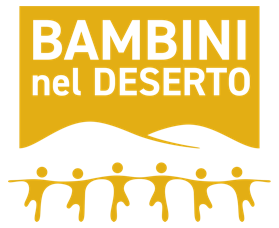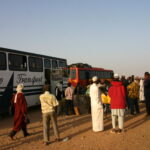Nine months passed from the end of July last year to April this year, the time of one gestation. The military putsch, which arrived relatively unexpectedly, was surprising above all due to the method used on the occasion. The kidnapping of the president in office in the presidential house by the guard who was supposed to protect him from this and other coup attempts. The cyclical rhythm of coups in Niger highlights the blockages in the exercise of the democratic pact between political parties and the ‘lightness’ of the institutions that should guarantee it. Among these we cannot fail to mention the military who since the beginning of the Republic have played a decisive role in the democratic or otherwise democratic structure of the country. Nine months of sand for a gestation, also made of sand. The one that sits, pleased, on the streets cleaned almost daily by municipal workers and that returns, punctually, to the same place the following day.
The policy adopted in the transition also seems, of course, to be sandy. The country’s tricolor flags have gradually disappeared, carried around by taxis and the most numerous and dangerous tricycles. Even the oceans of the first days at the stadium and the garrisons of the roundabouts have gradually given way to the stubbornness of daily life. The reopening of the borders and the lifting of sanctions by the Economic Community of West African States did not bring the relief that poor people and economic entrepreneurs were waiting for. The pirogue and institutionalized extortion continue to be the means that unites the two banks of the Niger river at the border with Benin.
Once the French military had been driven out and the few remaining civilians had been made discreet, it was the American military’s turn to be asked to leave. The Italian military remains on site, discreetly and awaiting future diplomatic-economic balances. The Alliance of Sahel States, AES in short, which includes Mali, Burkina Faso and Niger, the countries most affected by terrorism, banditry and profiteering, is intended as a political-military response to the dramatic situation of insecurity of the populations . There are millions of displaced people in this portion of the Sahel and the living conditions of thousands of farmers are at the limit of survival. The feared and, unfortunately, ‘institutionalised’ famine for years affects a significant portion of the people. The political choices linked to the absolutization of the concept of ‘national sovereignty’ and ‘autarchy’ have led to consequences and ‘impacts’ on people that have not always been taken into due account. Perhaps the crucial point of the transition/gestation of these months lies in the difficulty in finding the nucleus of the political project that animates the present. In order not to betray the ‘reality’ principle, it should put the ‘common good’ at the centre, that is, justice for the poor. In order to avoid reproducing the past in the future, politics and above all democracy were invented.


